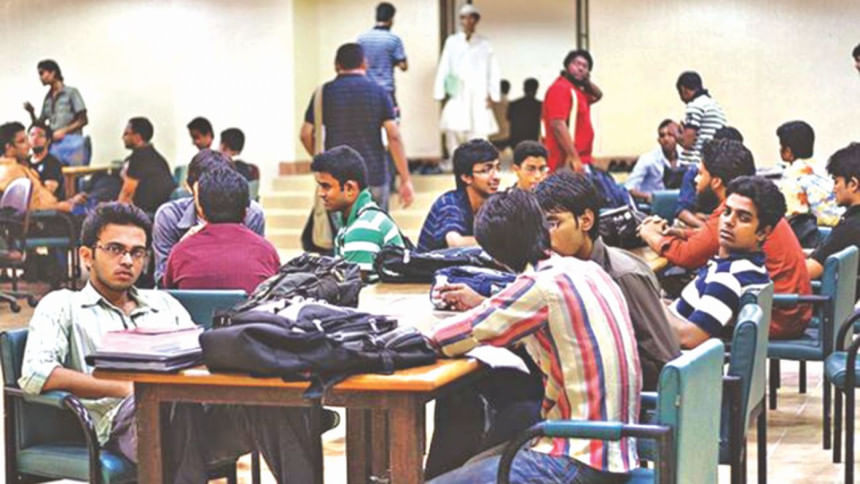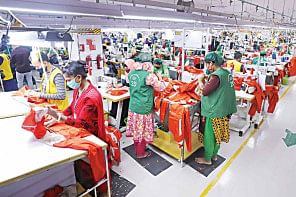For a level playing field

It would not be an exaggeration to say that the cost of attending a public university in Bangladesh is quite low compared to that of a private university. The reason can primarily be attributed to government grants to the public universities in the country. Unlike developed countries like the US or Canada, the government does not provide any financial support to the private universities, although the role of private universities in higher education is very substantial in Bangladesh.
According to the University Grants Commission Report, in 2017, the total number of private universities reached 85. Needless to say, this increase in the number of universities is due to the rising demand for university education in the country. But unfortunately, students attending private universities are paying too much, i.e. out-of-pocket expenditure, in return for benefits, i.e. income in the future. In contrast, students attending public universities are paying too little in return for benefits.
According to Bangladesh Bureau of Statistics (BBS), in Bangladesh parents' out-of-pocket expenditure for educations is known as "private cost" which is a sum of (i) admission/session/registration fees, (ii) tuition fees, (iii) examination fees, (iv) costs for coaching, books, pens, uniform, convenience, lunch, etc., as described by the BBS. Further to the BBS estimate, the per capita private cost for education in a public university is Tk 31,614 per annum; in contrast, the per capita private cost for education in a private university is Tk 51,608 per annum. So, the students attending a private university should have been paying approximately Tk 20, 000 per annum in out-of-pocket expenditures. The difference will be further aggravated if accommodation costs are added to the given out-of-pocket expenditures. In addition, there is an opportunity cost for attending university to obtain a degree which is equal for both public and private university attendance.
Now, let's look into the flow of benefit, i.e. the average entry level monthly salary of a graduate and postgraduate from a public or private university who entered the job market (or labour market) between 2011 and 2012. According to the BBS's estimate, the monthly wage is Tk 10,560 for a bachelor's degree holder and Tk 11,311 for a postgraduate degree holder. If it is assumed that a graduate works for 30 years over the period of his/her lifetime and receives income at an incremental rate of 10 percent per annum, then the estimated benefit (or income) of a university graduate and a postgraduate will be equal to Tk 12.46 million and Tk 13.35 million respectively. The figures of benefit are the same for both public and private university graduates.
A private university graduate expends more than a public university graduate but the return or benefit is the same—and an inequity is observed here. This inequity arises because of the difference in "Net Benefit" which is equal to income (or benefit) minus cost. This Net Benefit is discounted at a rate of six percent in order to find the Net Present Value of the Net Benefit and it was found to be Tk 3.21 million and Tk 3.13 million for a public and private university graduate respectively. And it is this difference in benefit that can be attributed to inequity in higher education in Bangladesh.
In order to eliminate this inequity, the government needs to provide private universities with grants so that the cost of higher education in private universities becomes relatively low and affordable. This will also help increase access to private universities for students of poor socioeconomic background.
Education is an investment. The investment takes place in two domains—public and private. While public investment in education is done by the government though budgetary allocations, revenue budget expenditure and development budget expenditure, private investment in education is done by households or parents in order to send their children to university. Public and private universities and households paying out of their pocket supplement one other when higher education in the country is concerned. Because of this supplementary role, the government's engagement to a greater extent is needed in order to ease the burden on households and to ensure equity in higher education in Bangladesh.
Shamsul Arifeen Khan Mamun has a PhD in economics of education from the Beijing Normal University, China. He has been working at the Strategy and Policy Unit of the Higher Education Quality Enhancement Project since 2016.
Email: [email protected]





Comments